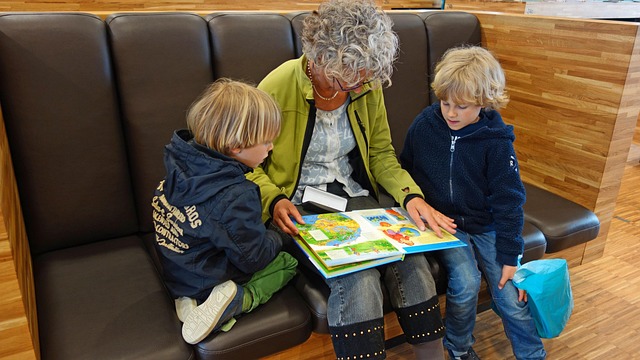Navigating child custody legalities involves understanding parental rights, with laws varying by jurisdiction. A custody lawyer clarifies concepts like joint vs. sole custody and negotiates visitation rights as part of custody agreements. Mediation assists parents in reaching mutually agreeable arrangements. Choosing a qualified custody lawyer with expertise in your region is crucial for handling complex cases, considering parenting plans, and facilitating amicable outcomes to protect children's emotional well-being during custody battles. Alternative Dispute Resolution (ADR) through mediation fosters cooperative solutions. Lawyers guide clients, negotiate agreements, and reduce the emotional toll of custody disputes.
Navigating a custody battle can be an emotional and complex process, especially with the stakes so high. Understanding the intricate legalities of child custody is crucial for ensuring your rights and responsibilities are protected. This article guides you through the ins and outs, from grasping fundamental concepts like joint and sole custody to exploring practical steps such as choosing the right custody lawyer and alternative dispute resolution methods. By delving into these topics, parents can gain insights into managing a custody dispute, ultimately facilitating healthier child visitation rights and custody arrangements.
- Understanding Child Custody Legalities: Navigating Parental Rights and Responsibilities
- When a Custody Battle Arises: Reasons, Impacts, and Available Resources
- Choosing the Right Custody Lawyer: Factors to Consider for Your Case
- Alternative Dispute Resolution: Mediation, Agreements, and Arranging Visits with Children
Understanding Child Custody Legalities: Navigating Parental Rights and Responsibilities

Navigating the complexities of a custody battle can be overwhelming for parents involved in a dispute. Understanding child custody legalities is a crucial first step, as it involves comprehending parental rights and responsibilities. The laws surrounding custody vary by jurisdiction, so seeking guidance from a qualified custody lawyer is essential. They can help clarify the differences between joint custody, where both parents share decision-making power, and sole custody, where one parent holds all legal authority.
In many cases, visitation rights and child visitation schedules are negotiated as part of a custody agreement. This document outlines the parenting plan, including specific times for each parent to spend with the child, ensuring a structured arrangement. Custody mediation is another common approach, where an impartial third party assists parents in reaching a mutually agreeable custody arrangement. A child custody attorney can provide invaluable support throughout this process, representing your interests and advocating for the best outcome in a custody dispute, ultimately helping to shape the future of your relationship with your child.
When a Custody Battle Arises: Reasons, Impacts, and Available Resources

When a custody battle arises, it’s often a result of disputes between parents regarding the care and upbringing of their children. These conflicts can stem from various reasons, such as differing views on parenting styles, relocation or changes in living arrangements, or unforeseen circumstances like domestic violence or substance abuse issues. The impact of such battles can be profound, affecting not just the parents but also the emotional well-being and stability of the children involved.
In such situations, seeking experienced legal assistance from a custody lawyer is paramount. They can help navigate the complexities of child custody laws, ensuring that both parents’ parental rights are protected. A custody attorney can facilitate custody agreements and visitation rights, whether it leans towards joint custody, where both parents share responsibilities, or sole custody, where one parent has primary care. Alternatives like custody mediation can also be explored to reach a mutually agreeable custody arrangement without escalating the dispute. Resources such as these are vital in helping families find a parenting plan that best suits their unique circumstances and promotes the children’s interests.
Choosing the Right Custody Lawyer: Factors to Consider for Your Case

When navigating a custody battle, selecting the appropriate legal counsel is a pivotal decision that can significantly impact the outcome of your case. Choosing the right custody lawyer involves considering several key factors. First and foremost, ensure they possess expertise and experience in child custody matters within your jurisdiction. A seasoned attorney will be familiar with local laws, court procedures, and potential outcomes, enabling them to provide tailored guidance. Look for a lawyer who specialises in family law or has a proven track record of handling complex custody disputes.
Additionally, consider their approach to negotiations and courtroom representation. Some lawyers excel at mediation and collaborative law, helping clients reach amicable custody agreements without extensive legal proceedings. Others are formidable advocates, ready to fiercely represent your parental rights in court. Aligning with your preferred resolution method is essential for a positive experience. Moreover, assess their communication style and availability; regular updates and open dialogue can alleviate stress during an emotionally charged custody dispute.
Alternative Dispute Resolution: Mediation, Agreements, and Arranging Visits with Children

In many cases involving child custody battles, Alternative Dispute Resolution (ADR) methods like mediation can prove invaluable. Unlike traditional litigation, ADR encourages cooperation and allows parents to maintain control over the outcome, often resulting in more sustainable agreements. A neutral mediator facilitates discussions between both parties, helping them navigate complex issues such as child support, custody arrangements, and visitation rights. This approach is particularly beneficial when parents share a willingness to compromise, aiming for joint custody or creating a parenting plan that prioritises the well-being of their children.
During mediation sessions, lawyers for each parent play a crucial role in guiding their clients while ensuring their interests are represented. These legal professionals can help draft and negotiate custody agreements, clarifying terms related to physical and legal custody, as well as specific arrangements for child visitation. Such agreements provide a framework for co-parenting, fostering a more harmonious environment for the children involved, and reducing the emotional toll often associated with custody disputes.
Navigating a child custody battle can be emotionally draining and legally complex. Understanding the nuances of parental rights, exploring alternative dispute resolution methods like mediation, and selecting the right custody lawyer are crucial steps towards reaching a favorable custody agreement. By prioritizing open communication, collaborative problem-solving, and the best interests of the child, parents can forge a sustainable parenting plan that promotes stability and growth for their offspring. Remember that with the right support, every effort made during this process contributes to building a brighter future for both parents and children alike.
